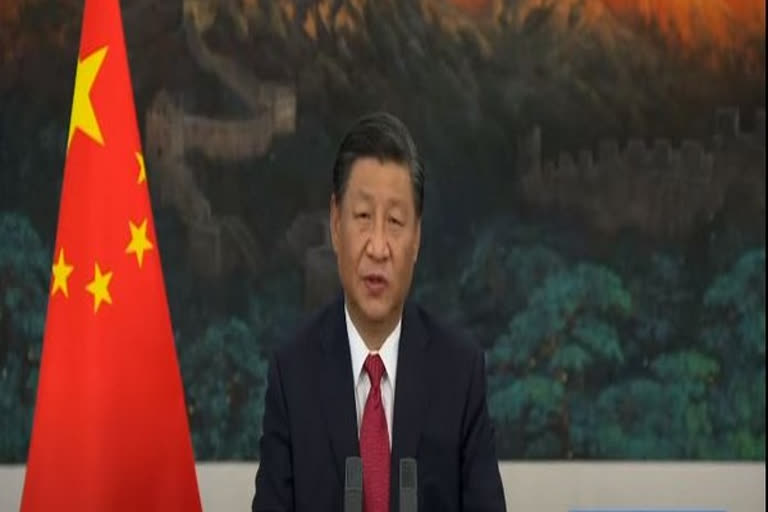Beijing: China's all-powerful President Xi Jinping turned 69 on Wednesday as he is all set to continue in power for an unprecedented third term, defying the 68-year retirement age rule followed by his predecessors. On his birthday, Xi had a telephone conversation with his friend, ally and Russian counterpart Vladimir Putin.
While Chinese leaders by tradition don't publicly celebrate their birthdays, this is a key year for Xi as he is set to complete the 10-year tenure of his presidentship after which all his predecessors retired. The official retirement age for Chinese leaders is 68 or two five-year tenures at the helm. His number two leader, Premier Li Keqiang, who will turn 67 on July 1, had already announced his retirement after completing his 10-year tenure this year.
Li told his annual press conference in March that this will be the last year for him to be in the post as he is set to retire later this year. This is my last year as a premier, Li had said. Li has maintained a low-key profile as Xi went about consolidating his power base, emerging as the most powerful leader after the ruling Communist Party founder Mao Zedong.
Christened as the core leader of the party like Mao, Xi heading the Communist Party of China (CPC), the powerful military and the Presidency, is widely expected to get endorsed by the key once-in-a-five-year-congress of the party, due to be held in October. But speculation is rife that the meeting will be rescheduled amid concerns over the fallout of Xi's stringent zero-COVID policy resulting in lockdowns, which have not gone down well with the Chinese public.
Xi's third term was regarded as a foregone conclusion after China's national legislature, the National People's Congress (NPC), removed the two-term limit for President through a key constitutional amendment in 2018. Since then, Xi is widely expected to remain in power for life as the party has already made him a core leader like Mao, who had remained the head of the party and the country till his death in 1976.
All other Xi's predecessors, starting from Jiang Zemin and Hu Jintao, retired after two five-year terms. Since he took over the party leadership towards the end of 2012, Xi quickly consolidated his power with his massive anti-corruption campaign in which over a million officials, including the powerful military and party officials, were punished.
His core leader status also ended the collective leadership principle advocated by Deng Xiaoping, regarded as China's paramount leader to avert pitfalls of the Mao era one-leader dominance of the party. As Xi's second tenure draws to a close, a key meeting of the CPC Plenum last year reinforced his core leader status with a historic resolution at the party's Plenum meeting.
The high-profile conclave adopted a landmark resolution of CPC's major achievements in the last 100 years and, at the same time, cleared the decks for a record third term for Xi in 2022. Xi, known as a 'princeling' as he was the son of former vice-premier Xi Zhongxun who was persecuted by Mao for his liberal views, rose to ranks steadily, becoming vice president under the previous President Hu Jintao.
While Xi had the image of a sedate leader in his previous postings, he transformed himself into the most ambitious and powerful leader soon after he took over the leadership of the party in 2012, immediately followed by the Presidency and the Chairman of the Central Military Commission (CMC), the overall high command of the two million-strong Chinese military. Experts said the Plenum held in last November essentially cemented Xi's hold on power.
"He is trying to cast himself as the hero in the epic of China's national journey," said Adam Ni, editor of China Neican, a newsletter on Chinese current affairs. "By pushing through a historical resolution that puts himself at the centre of the grand narrative of the Party and modern China, Xi is demonstrating his power," he had told BBC after the Plenum. (PTI)



